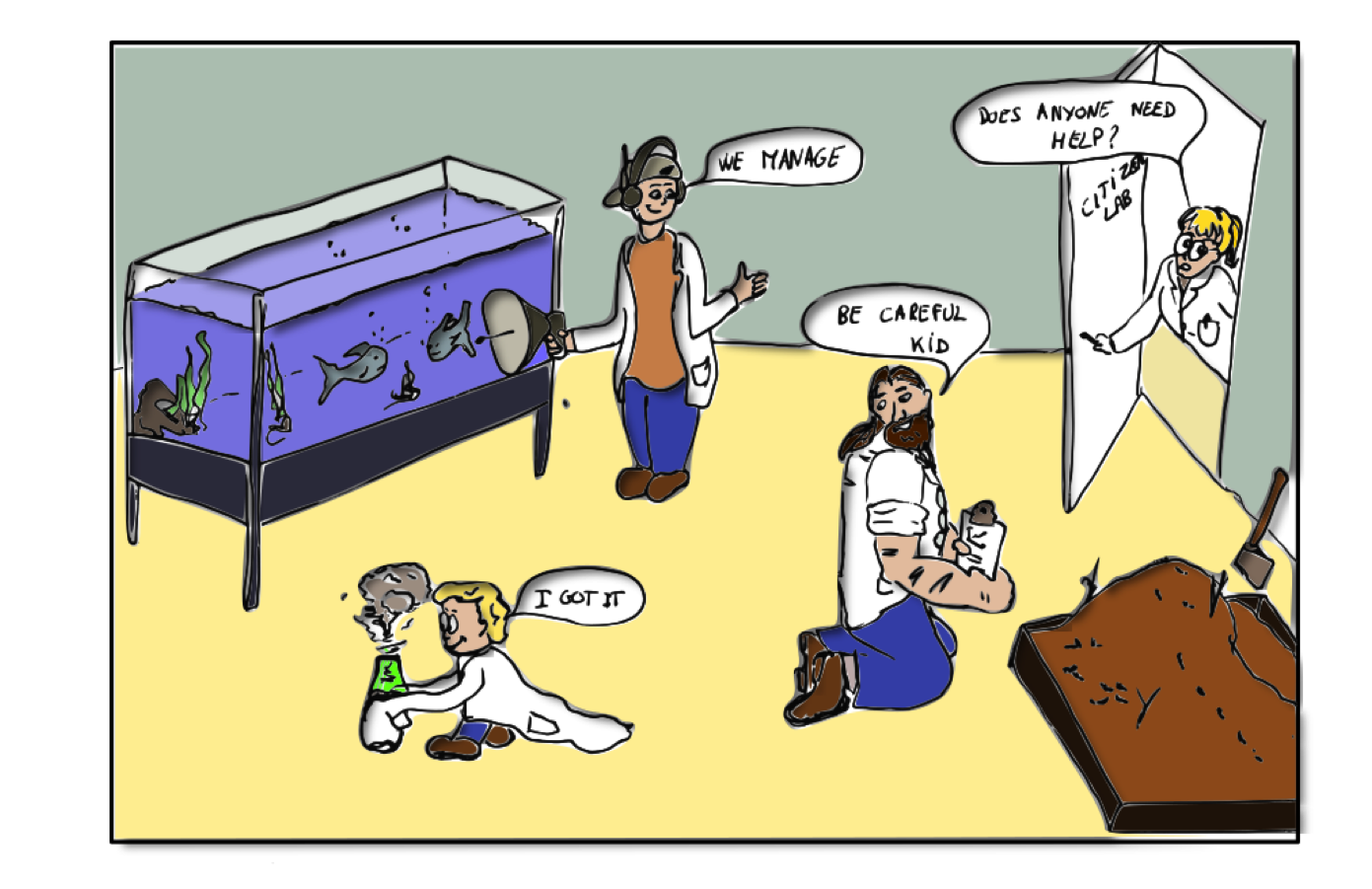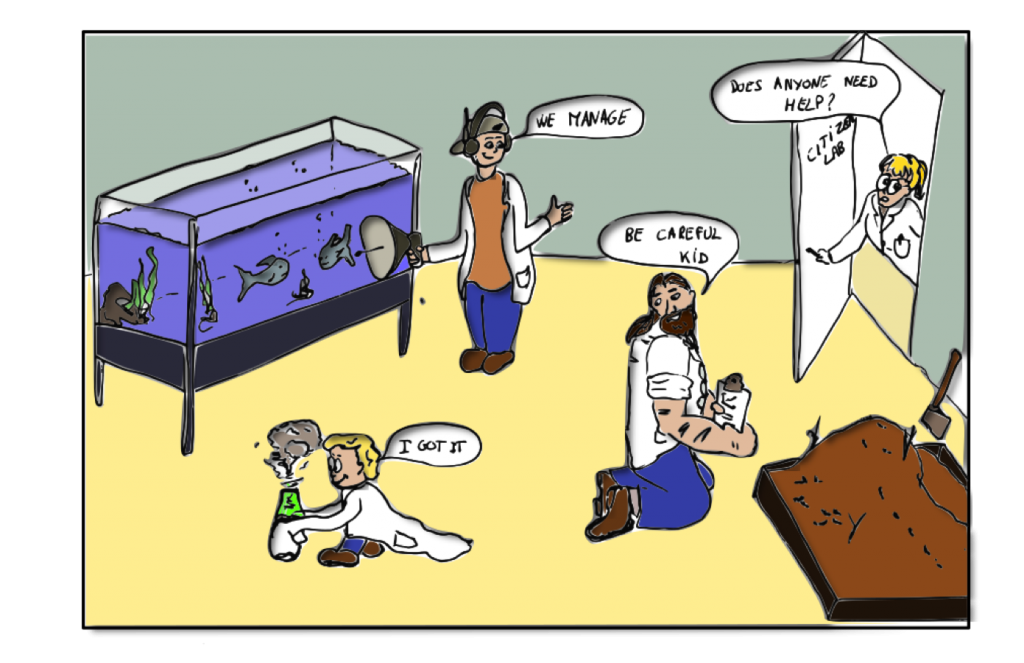This post is also available in Dutch.
A new concept is emerging in the way we do science: citizens are being involved in scientific discovery. It’s a win-win situation: citizens can answer their own question, and scientists can gather new data. Are you interested in doing science? Discovery will always take a long time in science, but let’s take a look at how you can get involved.
Recently, a group of Spanish high school students came to present the results of their two-year scientific study at the Donders Institute. These young researchers came up with the question of whether the color in their classroom would affect their attention and their productivity during class. Supervised by Donders researchers Guillaume Sescousse and Mathilde Bonnefond, these students set up an experiment and learned what it really means to do research. One of the most important things they learned was experiments do not always work out the way we want. To address this issue, together with their supervisors, the students took a step back, assessed the situation and tried to improve their experiment. They did this over and over again, and learned a lot during this time.
Crowd sourcing: you helping scientists
Together, we are stronger. The same holds in science, your help is valuable to us. For example, gathering data is really time consuming. You can join a community of citizen scientists that collect data. There are now numerous scientific projects all around the world that are searching for volunteers. It can be as simple as observing your dog and sharing your notes on an online database.
Answering your own research question
Be bold! Take the next step and lead your own research project (under supervision). One possibility is to join researchers in the laboratory: Experts in your topic of interest may well be interested. Try and make your question as specific as possible, and potentially come up with an idea of how to test it.
Scientific questions don’t necessarily come from within laboratories. You can also run your experiment locally with the help of researchers. Just As the Spanish students did, you can run your own experiment by taking part in the European project that bridges citizens and science “les nouveaux commanditaires”. Topics can range from the relationship between social care and multiple sclerosis, to the link between tolerance and friendship. If you are a French teacher and wish to run an experiment on cognitive science with your class, you can check out “Les savanturiers du cerveau “.
If you need resources for your research, then tools and facilities can be found in Citizens and collaborative labs, such as the Waag society in Amsterdam. These are laboratories open to citizens, with cool names like: hackerspace, openlab, makerspace and fablab. They all belong to the do-it-yourself movement. Some of these labs, such as the frysklab and its bus, even come to your door!
So, now you have insights on where and how to do research. The next time (and we hope it’s soon) you have a question on science, go and pursue it, get involved with a lab.
Don’t hesitate, do science!
More information
The project from Molins de Rei
The article that the students published
Article on the project from Molins de Rei
Eyewire
“Les nouveaux commanditaires”: the project
“sadventurer of the brain”
The waag society
Article on citizen science: Can volunteers do real research?
This blog is written by Roselyne Chauvin. Roselyne is doing research on normal and abnormal human development. She focuses on whether or not ADHD children develop differently from typically developing children.

